The hard drive is responsible for storing and processing the laptop's data. The two main types of hard drives are HDD and SSD, and their size and storage capacity vary from laptop to laptop. This article from EaseUS does a great job of helping you determine the correct laptop size. Dive into learning.
Overview of Physical Hard Drive Size
What does hard disk size mean? A hard drive has physical size (how many inches) and also represent the disk storage capacity of a laptop (how much data a hard drive can store). There are generally two types of hard drive sizes available. The 2.5 inches are typically used for laptops, and the 3.5 inches are used for desktops.
You can check the table below for the lengths, widths, and heights of different hard drives.
| Comparison | 💻2.5 Inch | 🖥️3.5 Inch |
|---|---|---|
| 🔎Length | 100.5 mm (3.95") | 147 mm (5.79") |
| 🔎Width | 69.85 mm (2.75") | 101 mm (4") |
| 🔎Height | 7 mm (0.28") | 26 mm (1.03") |
It's very unlikely that you'll see a 3.5-inch hard drive in a laptop. Laptops have long used 2.5-inch drives, so even older machines will use them. If you want to use a 2.5-inch drive on your desktop, you will usually need a special bracket to install it in the 3.5-inch drive bay.
Hard drives provide users with a large amount of storage space. And they are not expensive. So there are still many users who choose them as the hard disk of the notebook computer.
What Laptop Hard Drive Size Do I Need
What size of a hard drive do I need to choose for my laptop? 2.5 inch. The 2.5-inch hard drive is typically designed for laptops, while the 3.5-inch is for desktops. Now's the time to look at the different types and sizes of internal hard drives you can get for your laptop.
🧩Laptop HDD Size
When choosing an HDD, you need to consider two factors: the storage capacity of the drive and the rotational speed.
In general, hard drives with larger storage capacities tend to be better than those with smaller capacities. In general, the faster the RPM, the more sensitive the drive.
So, what size hard drive do I need for my laptop? It all depends on your use case.
- For home users, a laptop hard drive size between 250 and 500GB is fine. And most laptop users are using 500GB hard drives, which is more than enough for a standard laptop system.
- We recommend purchasing at least 1 TB of space (if possible) for commercial use. File sizes are getting larger, and so are laptop applications. Meanwhile, your operating system will take up around 20 GB of hard drive space.
🧩Laptop SSD Size
Finding really big SSD drives for laptops is tricky. The maximum capacity will likely be 1 TB, which will be much more expensive than a traditional hard drive.
- Many laptops these days come with 256 GB SSD drives, which is usually more than enough if you're a regular home user.
- For business users and heavy users, it makes sense to buy a 512 GB SSD or even 1 TB if you can afford it. For business users and enthusiasts, it's better to go for a 512 GB SSD or even 1 TB (if you can afford it).
Here, you can click the link below to learn how an SSD works and the difference between SSD and HDD.
How Does an SSD Work | SSD VS HDD 2023 - EaseUS
SSD VS HDD, How Does an SSD Work Differently from an HDD? Before knowing the difference between an SSD and an HDD, we should figure out what an HDD is.

How to Manage Laptop Hard Drive Size
You can manage your laptop hard drive in Disk Management and EaseUS Partition Master Free. They are both free and safe disk management tools. I will show you how to use both tools one by one. First of all, if you don't have much computing experience, I suggest you use EaseUS Partition Master Free, which is specially designed for novice users.
Manage Laptop Hard Drive Size via EaseUS Partition Master Free
Hard disk capacity cannot be changed, but you can use it flexibly by managing the capacity of each partition. EaseUS Partition Master Free can help you manage notebook hard drives flexibly. Its functions include extending/shrinking partitions, creating and deleting partitions, moving partitions, etc. Download this tool to manage the hard drive size on your laptop.
Here, I set "extend volume on hard drive" as an example to tell you how to use EaseUS Partition Master.
Step 1. Shrink partition to free up space to extend partition.
If the hard drive has enough unallocated space to extend the target partition, jump to Step 2, and continue. If not, free up space first:
- At the Partition Manager section, right-click on a partition next to the target partition and select "Resize/Move".
- Drag the partition ends to free up space, leaving enough unallocated space behind the target partition, click "OK".
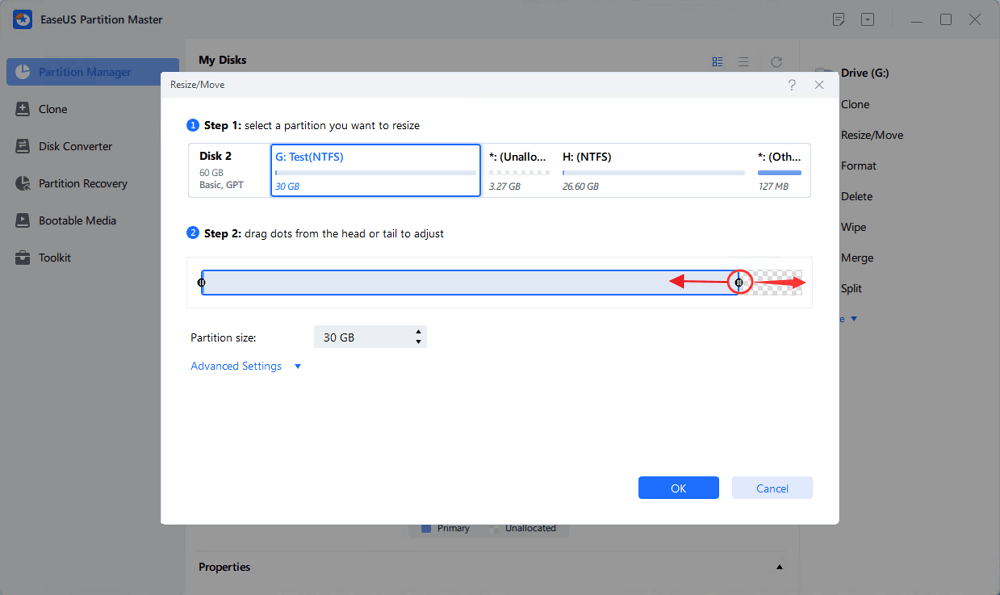
Step 2. Extend the target partition.
Right-click on the target partition you want to extend and select "Resize/Move".

Drag the target partition handle into the unallocated space to extend partition.
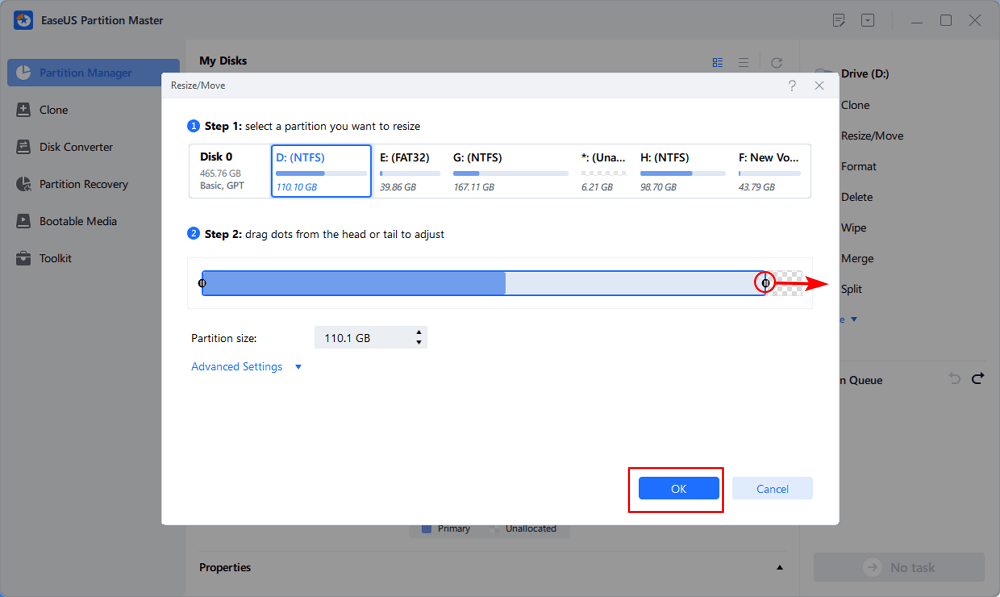
Step 3. Keep all changes.
Click the "Execute Task" button and click "Apply" to keep all changes.

In addition to expanding and shrinking partitions, this tool can merge partitions on SSD/HDD, initialize a hard drive or SSD, manage unallocated space, etc. Download it now.
Manage Laptop Hard Drive Size via Disk Management
Disk Management is a reliable disk partition manager in Windows. It can help you perform some basic disk partition operations. Check and manage your laptop hard drive by following the simple steps written below:
Step 1. You can access Disk Management in two ways:
- Right-click the Windows Start icon and click Disk Management to choose it from the list.
- Press the Windows + R keys, then type msc and press Enter.
Step 2. Choose a partition or a disk on the main interface, then right-click. You'll see a list of features you can choose from.

With this tool, you can shrink, extend, format, delete or create hard disk partitions.
Upgrade Laptop Hard Drive Size
When you find that the capacity of the laptop hard drive is too small, upgrading the laptop hard drive is a good choice. Many laptop users are switching from hard drives to SSDs for better performance and faster speeds.
If you want to upgrade your laptop hard drive to a high-speed SSD or a larger HDD to increase hard drive capacity, you must prepare an SSD and a reliable cloning tool, EaseUS Partition Master. And follow the steps below to transfer OS and other data from the old HDD to the SSD:
Step 1. Launch EaseUS Partition Master, go to the Disk Clone tab, select "Clone OS Disk" and click "Next".
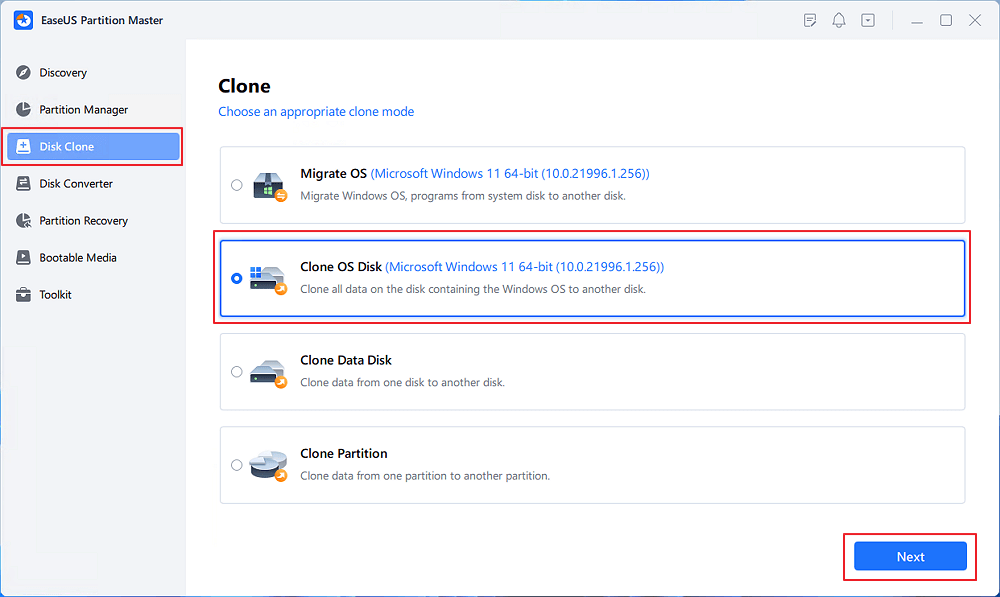
Step 2. Select the target new drive where you want to clone the OS to, and click "Next".
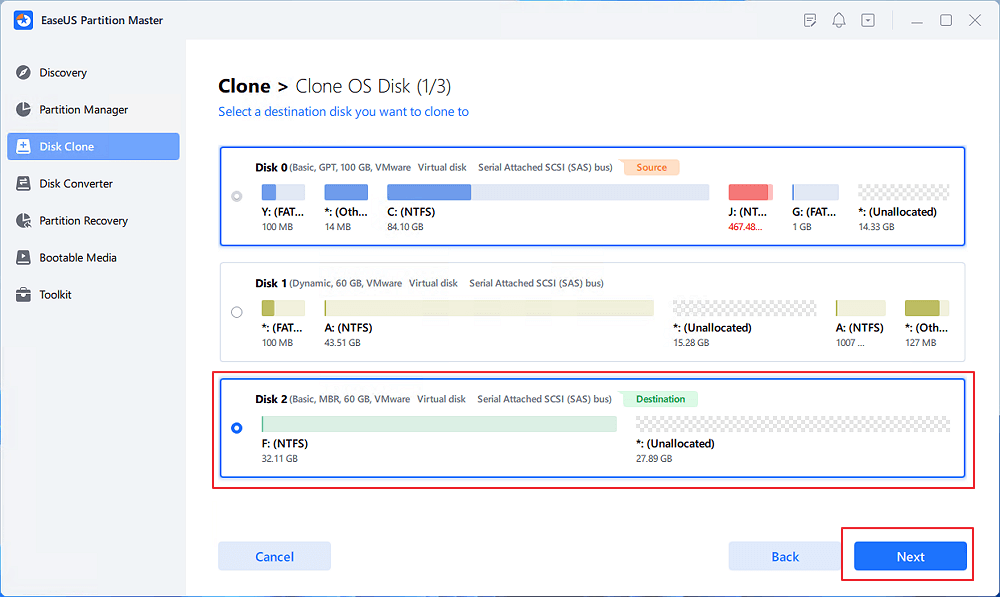
Click "Yes" to confirm that you want to continue the OS disk cloning process.
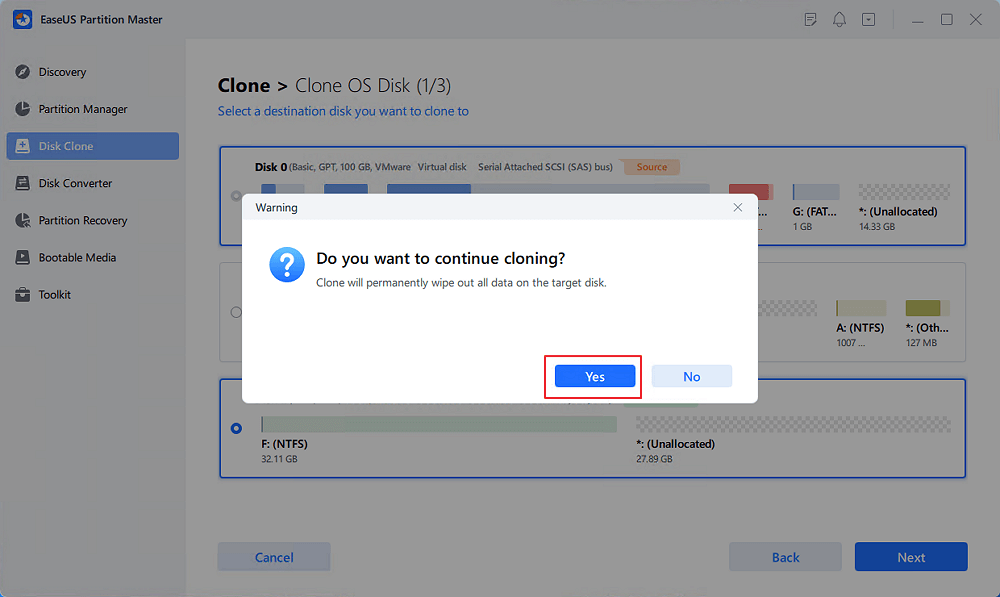
Step 3. View the disk layout, and click "Start" to begin the OS cloning process.
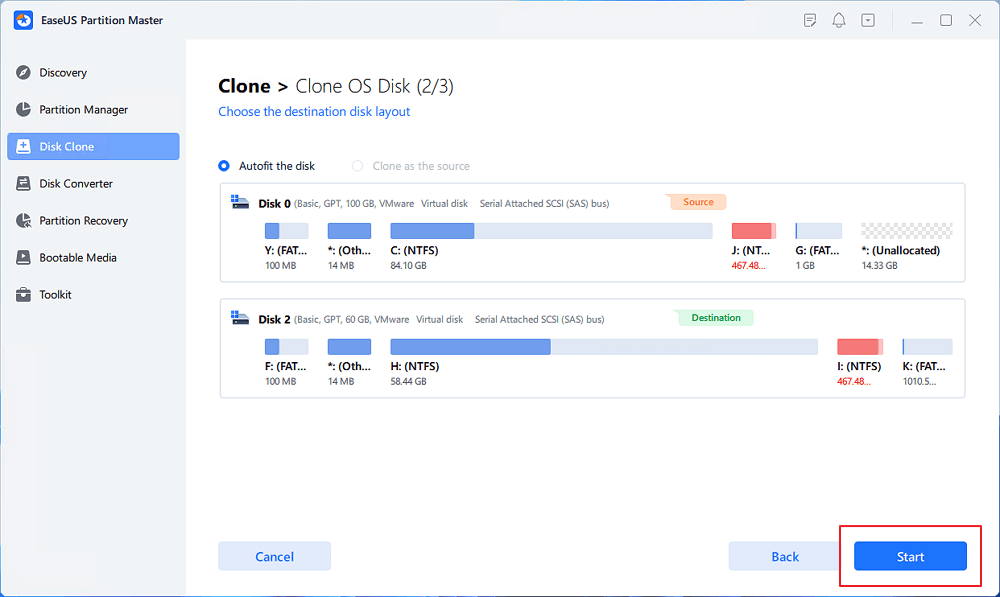
Step 4. When the process completes, you'll see a confirming message, asking "if you want to start up computer from the clone target disk".
- Reboot Now means to reboot your PC and configure the computer to boot OS from the new disk immediately.
- Done means you want to make the changes later.
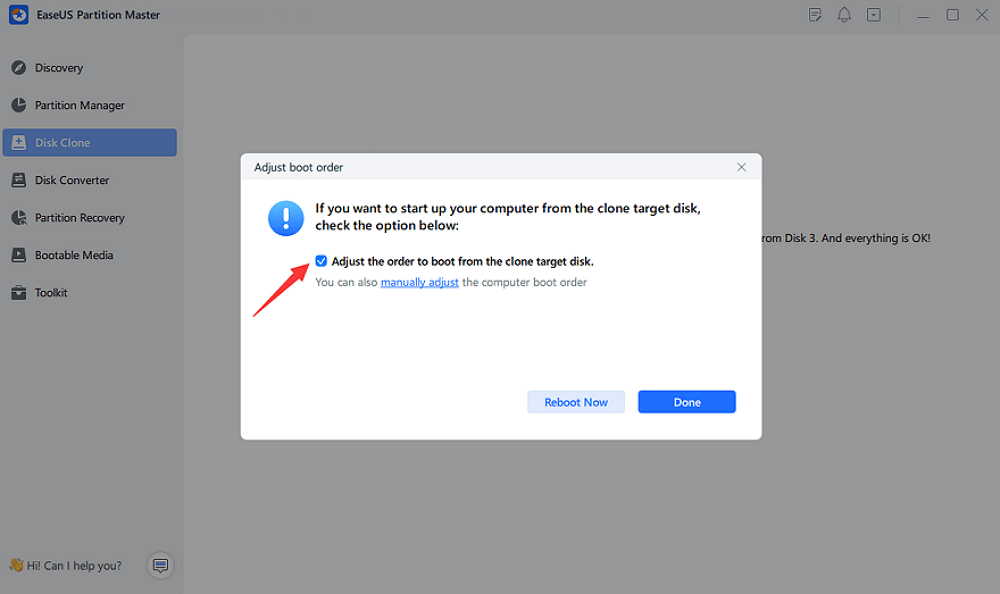
You May Also Like:
Conclusion
Now you know about common laptop hard drive sizes (physical size and storage capacity) and how to manage/upgrade a laptop hard drive. You can refer to the advice in this article to choose the right size laptop hard drive or solid-state drive when you don't know what size hard drive your laptop needs. In addition, if you need to upgrade the laptop's hard drive, this article also provides you with detailed tutorials. If this article answers your question, please share it with others.
Laptop Hard Drive Size FAQs
Do you know what hard drive size is suitable now? This article has answered this question. Here, read the following questions to get more information.
1. Is 256GB a lot for a laptop?
The 256GB of storage is more than enough if all you do with your laptop is occasionally browse the Internet and watch TV. If that's all you normally do, you'll probably only need 128 GB. But if you have a lot of large files to process or love to play games, 512GB (If you can afford it) is better.
2. What is the laptop's hard drive size?
2.5-inch, typically 2.5-inch hard drives are used for laptops, while 3.5-inch hard drives are used for desktop computers.
3. What does GB mean for an HDD in a laptop?
Hard disk capacity is measured in gigabytes(GB). Larger hard drives are measured in TB. A 1TB hard drive has approximately 1,000GB of storage space. The larger the hard drive, the more data and files it can store.
4. What is the size of a standard desktop hard drive?
3.5 inch. 3.5 inches. 3.5 inches refers to the size of the data platters, not the size of the hard drive mechanism. Generally, 2.5-inch drives are used in laptops, and 3.5-inch drives are used in standard desktop computers.
Was This Page Helpful?
Sherly joined EaseUS in 2022 and she has always loved writing articles and enjoys the fun they bring. She receives professional training here, focusing on product performance and other relative knowledge. She has written over 200 articles to help people overcome computing issues.
Related Articles
-
PC Turns On, but No Display or Power to Keyword [Fixed]
![author icon]() Larissa/2024-03-15
Larissa/2024-03-15 -
Failed to Personalize the Software Update, How to Fix?
![author icon]() Dany/2024-01-11
Dany/2024-01-11 -
How to Restore Backup From Google Drive to Every Device You Want
![author icon]() Daisy/2024-02-21
Daisy/2024-02-21 -
Format FS=FAT32 Quick: Full and Comprehensive Guide on Use It
![author icon]() Sherly/2024-04-19
Sherly/2024-04-19
EaseUS Data Recovery Services
EaseUS data recovery experts have uneaqualed expertise to repair disks/systems and salvage data from all devices like RAID, HDD, SSD, USB, etc.
